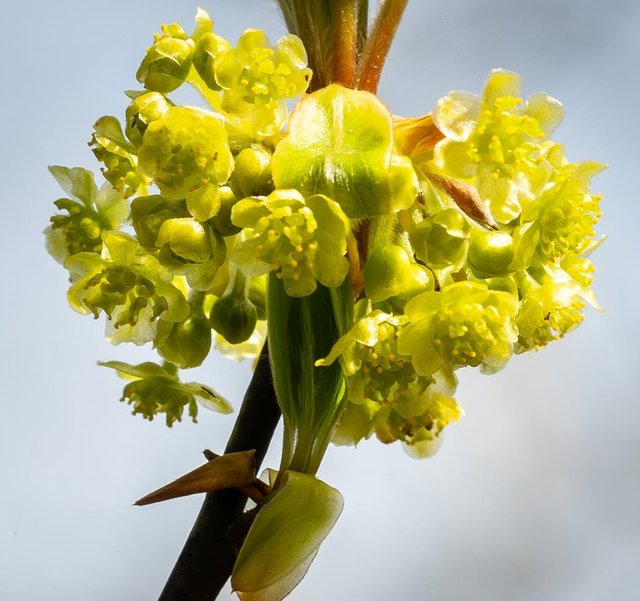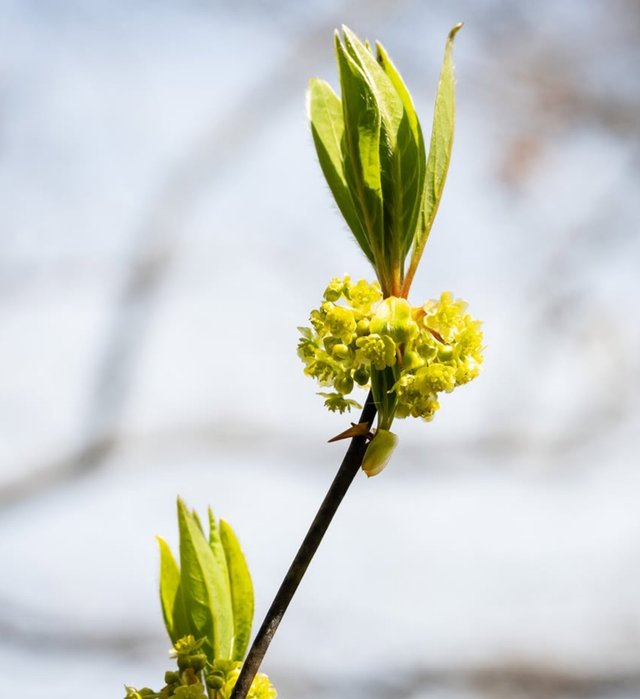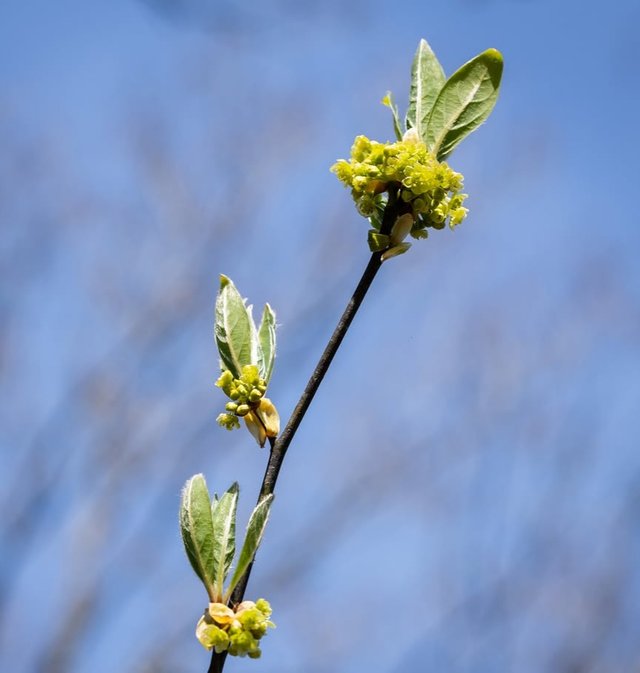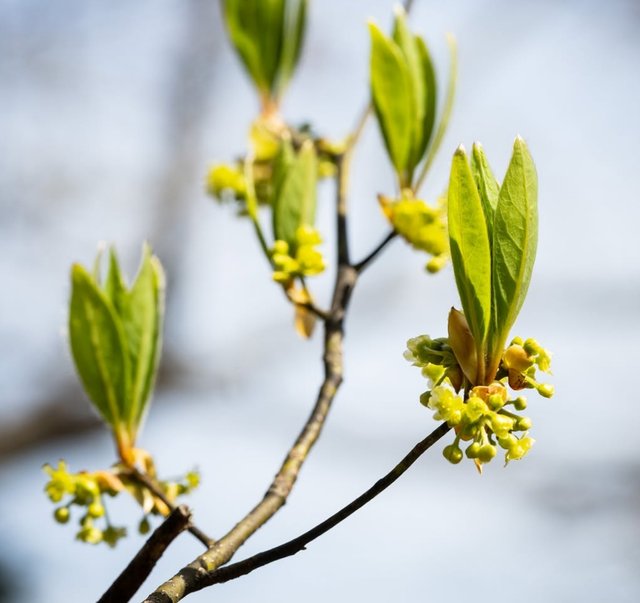So Beautiful Kuro-Moji Flower
Kuro-moji: Japan's Fragrant Forest Treasure
Deep in the serene forests of Japan grows a modest but remarkable shrub that has been quietly revered for centuries: Kuro-moji. Known for its distinctive aroma and long-standing role in Japanese traditional medicine, perfumery, and tea culture, this native plant—Lindera umbellata—has gained attention not only for its cultural significance but also for its therapeutic potential and ecological importance.
Kuro-moji is a deciduous shrub or small tree belonging to the Lauraceae family, commonly found in the mountainous woodlands of Japan. It’s especially abundant in the cooler regions like the Tohoku and Chubu areas, often thriving in the understory of mixed forests.
The name Kuro-moji, which literally means "black letters," refers to the dark spots on its slender branches. These branches have historically been carved into elegant toothpicks and stirrers used in traditional Japanese tea ceremonies, admired for their soft, spicy, and refreshingly citrusy scent.
Fragrance and Essential Oil
One of the most striking features of Kuro-moji is its essential oil, distilled primarily from the stems and leaves. The oil is rich in linalool, a terpene alcohol also found in lavender and rosewood, which gives it a delicate, sweet, and herbaceous scent.
Aromatic Profile:
Top notes: Bright citrus, green, and fresh
Middle notes: Spicy, woody, floral
Base notes: Soft and balsamic Because of its pleasing scent and calming properties, Kuro-moji oil is used in:
Aromatherapy: Known for anti-anxiety and relaxation benefits.
High-end perfumery: Often used as a Japanese alternative to rosewood.
Cosmetics and skincare: Valued for its antimicrobial and anti-inflammatory effects.




%20(9).jpeg)